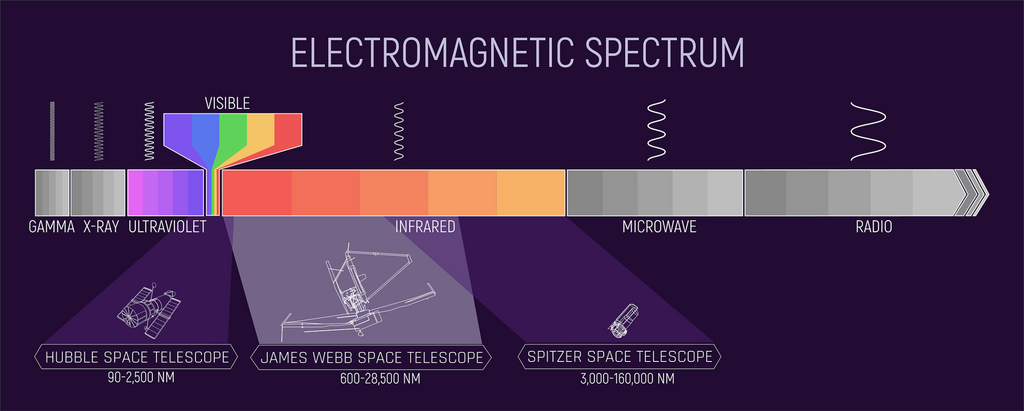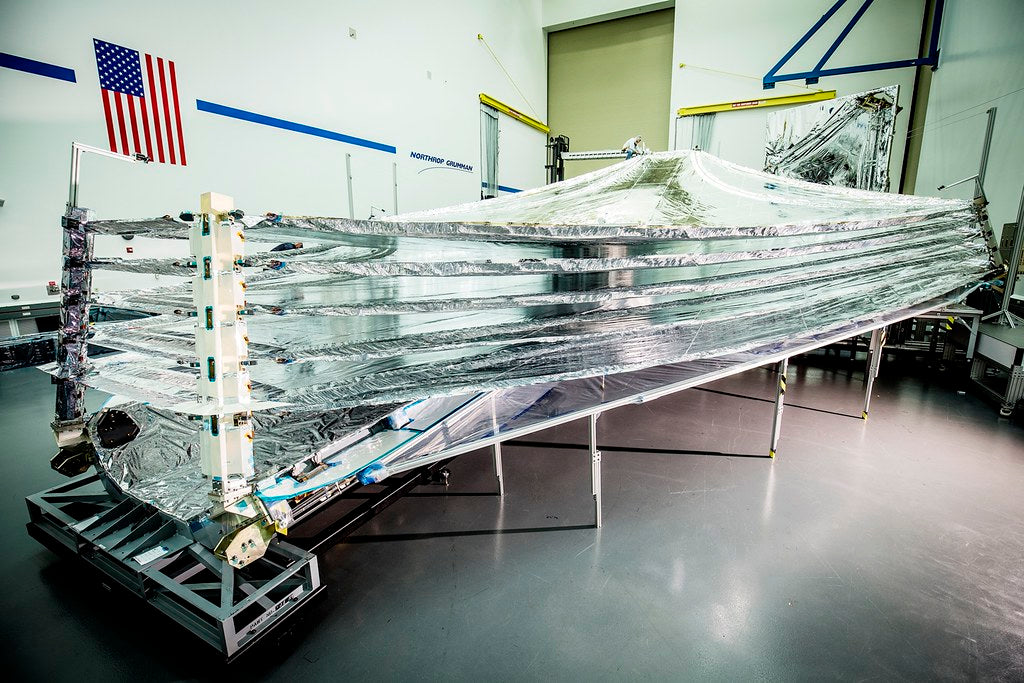
James Webb Space Telescope
Folded like origami
The James Webb Space Telescope will be so massive that will be launched on top of the largest operational rocket, the Ariane 5. However, that still isn't enough to fit the primary mirror and sunshield. With some clever engineering Webb will be launched all folded up and unfold once in space.

Mirrors made of beryllium and gold
To maximise reflectivity Webb's mirrors are made from beryllium and coated in a thin layer of 24K gold. Beryllium was choosen because it's a lightweight and strong metal. Regular mirrors reflect about 85% of light. By adding the gold this number gets bumped to 98%! Sweet.
 Engineers inspect one of the first two flight mirrors to arrive at NASA Goddard.
Engineers inspect one of the first two flight mirrors to arrive at NASA Goddard.
Successor of Hubble
The James Webb Space Telescope picks up where Hubble's research left off. Whereas the Hubble Space Telescope observed mostly visible light, Webb is an infrared telescope. This means that Hubble can "see" what the human eye sees and Webb can see beyond that with the longer infrared wavelengths. This has the benefits of being able to observe objects that are better observed in IR and look further than ever before because it can observe objects so far away that the light they emit has redshifted into infrared.
 CREDIT: NASA and J. Olmsted [STScI]
CREDIT: NASA and J. Olmsted [STScI]

Credit: NASA/ESA/M. Livio & Hubble 20th Anniversary Team (STScI)
Size of a tennis court, weight of a bus
Once fully deployed JWST will nearly be the size of a tennis court. This is mainly due to its sunshield which is about 22 meters by 12 meters (69.5 ft x 46.5 ft). The primary mirror has a diameter of 6.5 meters and has 6.25 times more surface area than Hubble!


Credit: ESA/M. Kornmesser
Operating at absolute near zero temperatures
The hotter something is, the more infrared radiation it will emit. Because JWST is an infrared telescope it is important to be as cold as possible. Otherwise every component in the telescope including the mirrors and sensor will be emitting their own IR and skewing the results as we are only interested in infrared being emitted from the stars, dust clouds and galaxies we are observing. In order to do this the Webb Telescope is equipped with a tennis court sized sunshield, preventing the spacecraft from warming up.


Additional reading:
James Webb Space Telescope [NASA]


